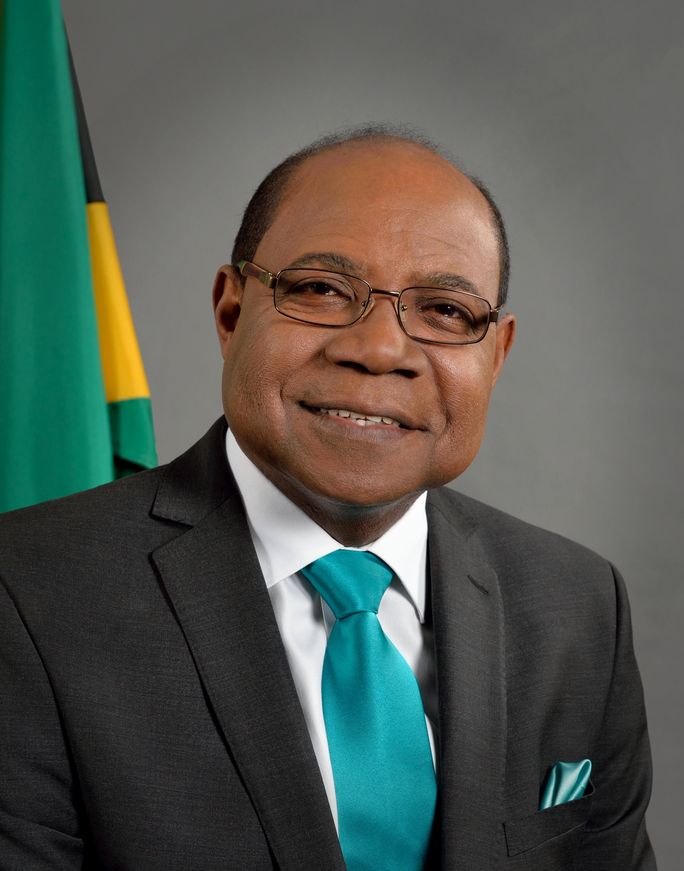
The Hon. Edmund Bartlett, the Minister of Tourism of Jamaica. (Photo Credit: Jamaica Ministry of Tourism)
The resilience of global tourism will be tested again as the world is in a period of disruptions partly because of the imposition by the U.S. of global tariffs, according to Edmund Bartlett, minister of tourism for Jamaica, speaking at a press event here. Last year, Bartlett co-wrote a book called "Decoding the Future of Tourism Resilience."
Tariffs, Bartlett said, are about trading, but while tourism does not involve the trading of goods, he added that they "cast a shadow over planning and airline tickets."
Tourism "is soft power that builds relations between nations." The erosion of soft power, Bartlett said, "is cumulative and we are seeing a shift already in tourism." The bigger problem beyond tariffs is trust. "I do not want to criticize any of these changes," said Bartlett, "but we do want to navigate them so we can maintain our growth."
The only certainty about tourism, said Bartlett, "is uncertainty." Whether it be earthquakes, weather, war, economic disruption, terrorism or anything else, tourism has almost always recovered. It is now the world's second-largest industry, representing 10 percent of global labor and 10 percent of global GDP. More than 100 countries, he said, are now very or somewhat dependent on tourism, a huge change in the last few years. As the industry has grown, said Bartlett, it has learned to recover quickly, although the process is not always linear.
Five years ago, Jamaica created a tourism resilience and crisis management center to anticipate and deal with tourism, Bartlett explained. That initiative has gone global, and there's even a UN-designated Tourism Resilience Day.
The Caribbean, said Bartlett, is the most tourism-reliant region in the world, representing a large percentage of workers and GDP.
Advisors have a role in these disruptions because they help create perceptions, and "perception is everything." He said that if a destination feels unwelcoming, it will affect travel. While Jamaica hopes to diversify markets, said Bartlett, "The U.S. is the soul of the Caribbean and any shift will create a level of discomfort and pain."
Tourism is always the fastest industry to recover, and it will recover, said Bartlett, "but we do worry about immediate affects."
Jamaica itself "is at an inflection point." He said the island had recovered from the pandemic faster than almost any other destination. The country had under three million visitors before the pandemic and now has 4.3 million. Its tourism earnings were under $2 billion pre-pandemic and are now $4 billion. The industry employs 175,000 people directly and 300,000 people indirectly.?
According to Bartlett, Jamaica has an impressive repeat business factor of 42 percent, which is something advisors should consider when selling vacations.
At this "interesting moment," Jamaica plans to diversify into more luxury, sports, and health and wellness tourism. It will also seek to diversify markets, but the U.S. will always be the top market.
These efforts, said Bartlett, will require an upscaling of skill sets and the need to look at the development of human capital in a new way. The island is working to professionalize its tourism workforce. There's now a pension plan for tourism workers and a law that any development of 500 rooms or more must provide housing for employees. "We want to show a commitment to our workers," said Bartlett.
Jamaica is also working to develop a sustainable infrastructure with new roads to develop new destinations to avoid overtourism. A new airport is being built in the Negril resort area.
One idea being discussed, said Bartlett, is a tourism resilience fee that would be added at every point of consumption to build up a fund in case of a major disruption.
Jamaica's first casino will open in November at the new Princess hotel. Two more casinos have been approved, with locations to be determined. "We don't want to be a casino destination," said Bartlett. "We want to be a destination where casinos are one option."
In addition, Kingston, the country's capital, is becoming a major tourist destination because of its restaurants, meeting facilities, sports and more. It is emerging as the entertainment capital of the Caribbean, said Bartlett.
Looking beyond Jamaica, "The integration of Caribbean tourism is crucial in the face of a global realignment and the resurgence of nationalism."
For the latest travel news, updates and deals, subscribe to the daily TravelPulse newsletter.
Topics From This Article to Explore